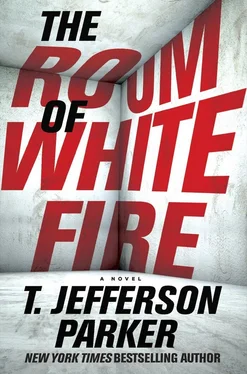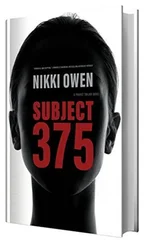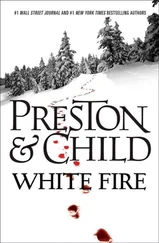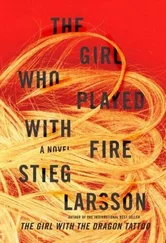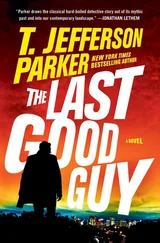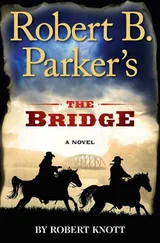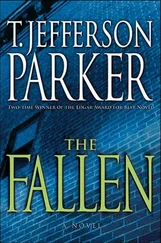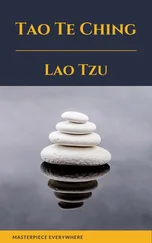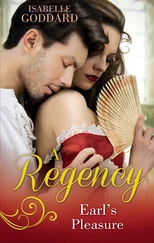Some even have access to landing strips. I’d met Ojai-based Pete once in Denver, and an hour and a half ago he’d been happy to offer me his friend’s landing strip. He said he’d leave a car there for me, too — keys on the right rear tire.
PIGs roll together. And I had the feeling I’d need all the luck that brotherhood could buy me.
I locked up Hall Pass 2 and called Sequoia. Got voicemail; texted and got nothing back. It took me ten minutes to get to town. Ojai sits on the tip of the Santa Ynez Mountains, north of Ventura, twelve miles from the Pacific. It’s a Spanish Revival — style town with a nice arcade and campanile, photogenic, and popular with tourists, motorcycle clubs, and golfers.
The Regal Motel was just off Matilija. I drove Pete’s aging Taurus through the crowded little parking lot until I saw Sequoia’s silver truck. A gorilla key chain from the Primate Palace hung from the rearview mirror. I found a space across the lot with a good view of the truck and backed in. The Regal Motel was two stories, and their room was ground level. In the middle of the parking area, a big valley oak grew behind a low concrete wall. A gray cat sat on the wall in the shade, licking its paw on this warm April day. I felt clear in the head and ready to meet my opponent, still not sure what I was going to do with him.
I texted Sequoia again and waited. The curtains in room 104 were drawn, the air conditioner dripped. No reply.
Ten minutes later they came out. Sequoia pulled the door closed snugly, then they walked all of the ten feet to the truck, Clay’s arm draped lightly over her shoulders. I watched for signs of fear or coercion but they looked like lovers and nothing more. In the moment. Appreciative of this time together. Sequoia was dressed much as I’d seen her before — denim shorts with fashion tears in them, a baggy plaid shirt with the sleeves rolled up, hiking boots. Clay Hickman wore what looked like the same clothes he’d ditched Arcadia in — tan cords and a black T-shirt, dressy shoes. He opened the passenger-side door and she got in.
When they turned onto Matilija I followed them to the exit, then let two cars get between us for cover. Clay drove carefully, working his way north and east through town. He picked up Highway 33, leading me past Matilija Canyon, then Dry Lakes Ridge, headed toward steep and rugged Los Padres National Forest.
The highway was heavily forested and climbed steadily in elevation. I kept a car between us. Nothing in Clay Hickman’s driving suggested evasion or even much precaution. Then, abruptly and without signaling, he turned right onto an unmarked dirt road. I had no choice but to slow down with the cars in front of me, then continue on past the turn. As I went by I could see the silver truck trundling away, puffs of dust coming off the tires. A half mile farther, I U-turned and backtracked. The unmarked dirt road was oiled, well kept, and winding.
Two hundred yards from the highway I came to what looked like a very large gravestone lying on its side. I stopped and studied it. It was set levelly into the earth, and a modest bed of daisies had been maintained around its base. The stone itself was a red granite rectangle approximately six feet long, four feet high, and at least six inches thick. It was polished and clean. One word was cut into the stone in graceful cursive letters:
HICKMAN
I took a picture with my phone and continued on. The trees were dense and the curves were narrow. Half a mile farther I climbed a gentle rise and came to a stop. From there the road ran straight through the forest toward green, rounded mountains. Low on the flank of the foremost mountain, partially hidden by trees, stood a large white farmhouse. Black trim. Outbuildings painted similarly. Reminded me of homes I’d seen once in Pennsylvania Amish country. I could see what looked like a barnyard or a large lawn. In front of this was a rolling, white-fenced pasture where horses grazed in the sunshine. On the road, midway between the house and the pasture fence, stood a guardhouse, the white crossbeam lowered over the road.
Sequoia’s aging silver pickup idled at the guardhouse, then the arm rose and the truck went ahead. I backed Pete’s car into a highway-patrol turn, then picked my way back down the road until I found room in the trees. Got my binoculars from the trunk, hiked back up the rise, and glassed the scene.
The silver truck was parked near the house with three other vehicles — a Tesla, a Porsche Cayenne, and a BMW X5. Beside them the little truck looked like a family secret. The guardhouse crossbeam was down again and a uniformed man stood with his back to the front window of his booth, looking up at the house, a cell phone to one ear. He was older, heavy. Seemed to be listening intently. Then he was shaking his head firmly in the negative. Then another long listen before shaking his head in the affirmative and clicking off. I noted the time: 2:24. He dialed and waited, phone to his ear.
The afternoon sun had started its downward roll, splashing light on the white house and the white fencing and the green pasture and the cars. The Hickman home was a beautiful estate in a beautiful setting and it tried to tell me that nothing could ever go truly wrong there: it was a simple factory for producing privileged human beings. I lit a smoke and wondered how it was going in there between Clay and his parents, assuming that Rex and Patricia were home. I could wait and wonder. Or drive right up to the guardhouse and announce myself. Or finish the cigarette.
With the binoculars up again, I glassed the forested mountains and the wispy cirrus clouds above and suddenly I thought of Wesley Gunn, eighteen years old and less than half a year away from losing half — perhaps all — of his eyesight. Rage, Wrath & Fury started up. Very protective of Wesley. I pictured him down in Mexico right now with Burt and Lindsey, searching for a miracle. And I thought of what the poet had written about the dying of the light and I wondered what kind of god would shoulder a bright and untested young man with such a dark and permanent burden. Leaving him rage instead of vision? What good would rage do Wesley? It wouldn’t stop the dying of his light. Wesley wasn’t even angry yet. He was mostly bewildered, and only lately starting to feel the yoke of fear fitted to his young shoulders. Even Justine had gotten her thirty-one years. And to be truthful, Justine had tempted her Lord. Tempted Him by flying close to His sun, showing Him her skill and courage, by being unafraid of what He might do. By enjoying it all — the risk, the thrill, the victory of staying alive. Wesley hadn’t done anything brasher in his life than throw footballs for touchdowns.
I sat there for a good long while, watching the house and the surrounding mountains, willing Rage, Wrath & Fury to pipe down. I’m better now at shutting them up. They grew still. In the welcomed quiet, a Cessna 182 passed by overhead, Lycoming engine growling right along. I watched it disappear in a cloud.
The guardhouse crossbeam lifted. I looked behind me, back down the drive leading in, and saw two black, dark-windowed SUVs moving toward the house. I glassed them and saw that each vehicle carried two men, and that these men wore sunglasses and were neither talking nor moving except with the bounce of the road, and looking nowhere but straight ahead. Presumably armed. I swung the glasses to the guardhouse again and saw him step out, pushing red twelve-gauge loads into the breech of a pistol-grip shotgun with a stub barrel. Nothing like a shotgun to make the heart jump. I got my phone.
3:03 PM
Four men coming. Guns probable. Surrender immediately. Do not resist in any way. This is a direct order.
Читать дальше
